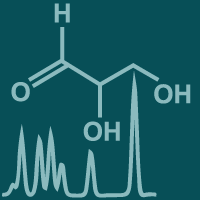Topic Menu
► Topic MenuTopic Editors


Flozins - New Revolution Has Started
Topic Information
Dear Colleagues,
SGLT2 inhibitors (flozins) have well-established clinical indications in the treatment of type 2 diabetes, chronic kidney disease, heart failure with reduced and preserved left ventricular ejection fraction. Currently, the important role of SGLT-2 inhibitors is also being discovered in the treatment of arterial hypertension, metabolic-associated fatty liver disease, anemia and long-COVID syndromes. SGLT2 inhibitors freed themselves from the odium of nephrological-diabetological-cardiovascular drugs, with recent data showing that their use is multidirectional and related to presence of SGLTs present in many organs. The revolutionary role of SGLT2 inhibitors was summarized by prof. Eugene Braunwald - the legend of world cardiology, stating that these drugs are "the statins of the 21st century". We invite you to submit review papers, systematic reviews, meta-analyses and original studies for our multidisciplinary topic "Flozins - New Revolution Has Started", in which we would like to collect the latest and most interesting data on SGLT2 inhibitors.
Prof. Dr. Krzysztof J. Filipiak
Dr. Aleksandra Gąsecka
Topic Editors
Stanisław Surma
Topic Editor Assistant
Keywords
- SGLT2 inhibitors
- flozins
- diabetes type 2
- CKD
- heart failure
- MAFLD
- long-COVID
Participating Journals
| Journal Name | Impact Factor | CiteScore | Launched Year | First Decision (median) | APC |
|---|---|---|---|---|---|

Journal of Cardiovascular Development and Disease
|
2.4 | 2.4 | 2014 | 20.3 Days | CHF 2700 |

Metabolites
|
4.1 | 5.3 | 2011 | 13.2 Days | CHF 2700 |

Hearts
|
- | - | 2020 | 32.3 Days | CHF 1000 |

Medicines
|
- | - | 2014 | 32.6 Days | CHF 1400 |

MDPI Topics is cooperating with Preprints.org and has built a direct connection between MDPI journals and Preprints.org. Authors are encouraged to enjoy the benefits by posting a preprint at Preprints.org prior to publication:
- Immediately share your ideas ahead of publication and establish your research priority;
- Protect your idea from being stolen with this time-stamped preprint article;
- Enhance the exposure and impact of your research;
- Receive feedback from your peers in advance;
- Have it indexed in Web of Science (Preprint Citation Index), Google Scholar, Crossref, SHARE, PrePubMed, Scilit and Europe PMC.

